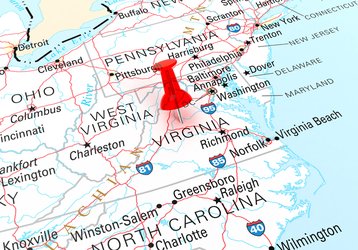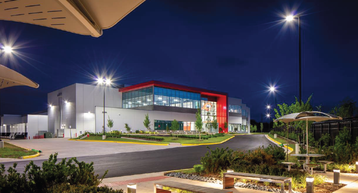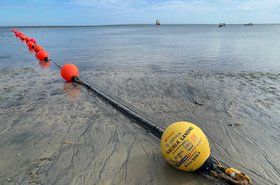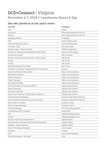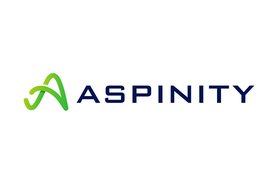Counties across Northern Virginia are considering bills that may curb data center developments in the region.
Following on from several bill proposals put forward earlier this year by Virginia-based politicians, the state is continuing to suggest limitations for data center developers, while some other bills previously recommended have fallen through.
New bills making progress in Virginia
Loudoun County lawmakers have recommended a new zoning permission bill.
The county began the legislative process on February 6, 2024, on a bill that would see all data center developers required to seek approval from county lawmakers, thus removing data centers as a by-right use on all properties in all zones, reports the Washington Business Journal.
As a result, even if the land was purchased with the correct zoning for data centers, and likely at a premium, applicants will still need to seek approval from the county before they can develop the site.
The revision to the zoning guide was voted in favor 7-2, and will kick off the revision process which is expected to take around 16 months. A Board of Supervisors public hearing will be held in the spring of 2025.
If approved, this could result in data center developers losing tens of millions if land that was bought for a data center is downzoned from underneath them. County Attorney Leo Rogers, though conceding that supervisors are within their rights to impose such legislation, warned that he "definitely would anticipate litigation" from "owners that have invested significant money into the property."
Site assessment bill progresses
Another bill, proposed in January 2024, HB 338 Siting of data centers; locality to perform site assessment before approval, has made it through to the Virginia House floor for a vote.
HB 338 will require localities to conduct water studies prior to approving data centers. The bill was introduced by Democrat Josh Thomas, who represents western Prince William County, and will make local governments investigate the effect of data centers on water usage, carbon emissions, and agricultural resources.
This recommended bill arose after the approval of the PW Digital Gateway tech corridor, for which Fairfax County Water Authority requested Prince William County officials perform a water use study. No such study was conducted.
“This vote is a wake-up call to the data center industry,” Thomas said in a statement. "The citizens of the Commonwealth, especially those in western Prince William County, have demanded more transparency in the data center siting process, and this bill is a critical first step. HB 338 will encourage localities to analyze the impact of data centers on the community before projects are approved – not after.”
The bill was sent to the House floor on February 9. If approved by the House, Virginia Senate, and Republican Governor Glenn Youngkin must also sign off for it to become law.
Bills that have fallen through
Meanwhile, several bills designed to stymie data center development have stalled.
One bill is HB 337 Siting of data centers; impacts on resources and historically significant sites. The bill would limit the locations where data centers could be developed according to impact on historic, agricultural, and cultural resources, including that it could not be within a half-mile of a national park, state park, or other historical site, has been tabled.
Also proposed by Democrat Josh Thomas, the bill failed to proceed following a vote by the House of Delegates subcommittee on February 8.
Chap Petersen, representing residents in a lawsuit against the Prince William Board of County Supervisors over the PW Digital Gateway development, said of the decision to postpone the bill: "The data center industry is overwhelming the Rural Crescent in Virginia. The environmental cost will be incalculable. The General Assembly has done nothing for years. To defer the issue for ‘more study’ is a joke.”
On behalf of the data center sector, Kate Smiley of the Data Center Coalition argued: “This bill specifically targets data center development, while continuing to permit more intensive economic uses, industries, and projects that may be located on the same sites. It’s singling out an industry with very little regard to what may come instead."
The HB 337 bill will now have to wait for the commission report from the General Assembly's Joint Legislative Audit and Review Commission (JLARC) study looking into the proliferation of data centers in Virginia. That study, approved in December 2023, will be conducted throughout 2024, and cannot be expected until much later in the year.
Another bill that has floundered is SB 286 Electric utilities; underground transmission lines. The bill would ensure more transmission lines were built underground, but was decided "failed to report (defeated)," or rejected to report a bill to the full chamber, on January 29 by Commerce and Labor.
Similarly, noise abatement bill SB 288 Data centers; noise abatement was labeled "failed to report (defeated)," on January 29 by the Local Government.
Fundamentally similar to SB 286, HB 340 Electric utilities; underground transmission lines was tabled on January 30 with seven votes in favor and three against.
Bills that have been postponed until 2025
SB 284 Siting of data centers; impacts on resources and historically significant sites
Similarly, a vote on February 7 saw the SB 284 (which is fundamentally alike to that of the HB 337) bill was continued to 2025 in General Laws and Technology with 13 in favor, and two votes against.
SB 285 Siting of data centers; site assessment
The bill proposed to require a locality to disclose data center water and power usage at full build-out and examine the local impact was also continued to 2025 in General Laws and Technology with 13 in favor, and two votes against.
SB 289 Stormwater management regulations; enterprise data center operations
The bill that would direct the State Water Control Board to adopt regulations compelling stormwater management techniques for enterprise data centers located near National Park Services or Virginia State Parks was continued to 2025 on January 23.
HB 910 Department of Energy; data center energy usage
A bill, proposed by Democrat Kannan Srinivasan, would require each data center in the commonwealth to make a quarterly energy source report to the Department of Energy's Division of Renewable Energy and Energy Efficiency to identify the amount of energy, disaggregated by the source of energy, consumed by the data center in the previous quarter. This was continued to 2025 on February 1.

